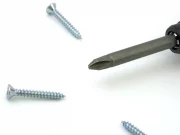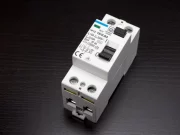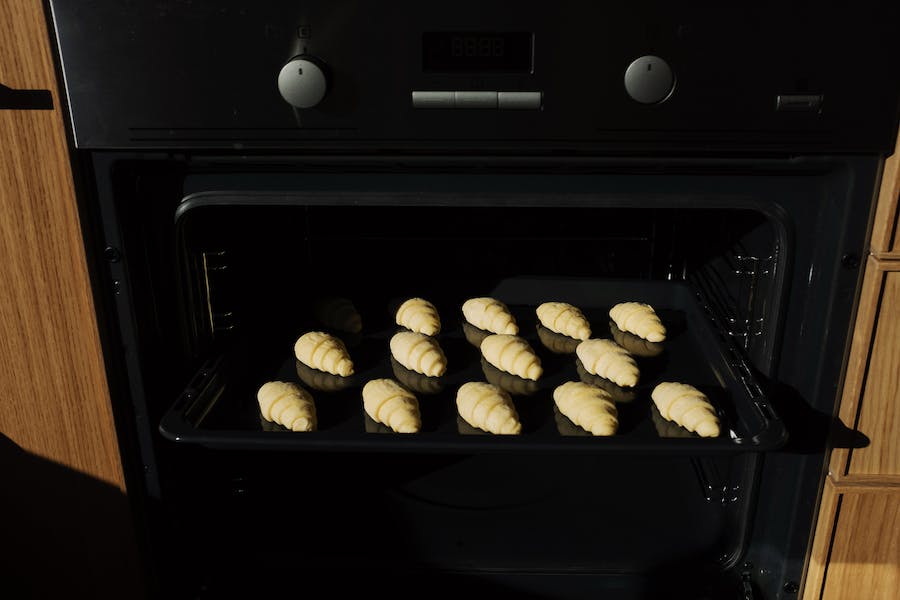The unmistakable scent of gas wafting from your oven can cause concern and immediate action. It raises questions about the safety and integrity of your appliance. In this article, we delve into the perplexing issue of why your oven might emit a gas odor, exploring the common reasons behind it and providing practical solutions to ensure the safety of your household. Understanding the root causes and taking proactive steps can help you enjoy your oven without worrying about unpleasant and potentially dangerous gas odors.
Why Does My Oven Smell Like Gas?
If your oven smells like gas, it’s crucial to address the issue promptly to ensure safety. Several common reasons could lead to this odor, including residual gas from previous use, pilot light or igniter problems, leaks, dirty burners, or a faulty gas regulator. To pinpoint the cause and resolve it, consider checking for these issues and, when in doubt, consult a professional technician. Safety should always come first when dealing with gas appliances.
Common Causes Of Gas Odor In Ovens
Gas ovens emitting an unusual odor can be attributed to several common causes, each requiring specific attention and solutions:
Residual Gas From Previous Use: After using your gas oven, a small amount of gas residue may linger within the oven chamber. When you preheat it for a new cooking session, this trapped gas can create a temporary gas smell. The solution is relatively simple—before cooking, allow the oven to ventilate by turning it on and off for a few minutes with the door open, ensuring the residual gas dissipates safely.
Pilot Light Or Igniter Issues: If your oven’s pilot light or igniter is malfunctioning, it can lead to a gas smell. The pilot light or igniter ignites the gas when the oven is turned on. When it doesn’t function correctly, gas might escape without ignition, resulting in an odor. To resolve this, inspect and, if necessary, repair or replace the pilot light or igniter.
Gas Leaks: Gas leaks are a serious safety concern and can result in a noticeable gas smell. Leaks can occur in the gas line, connectors, or oven. If you suspect a gas leak, it’s imperative to take immediate action. Turn off the oven, open windows and doors to ventilate the area, and do not use any open flames or electrical appliances. Contact a gas professional or emergency services to assess and repair the issue promptly.
Dirty Or Clogged Burners: Over time, dirt, debris, and food residue can accumulate on the oven’s burners. When you use the oven, these contaminants can create a gas smell as they burn off. Regular cleaning and maintenance of your oven’s burners can prevent this issue. Remove the burners and clean them thoroughly to ensure proper combustion and prevent odors.
Faulty Gas Regulator: The gas regulator is responsible for controlling the flow of gas to the oven. If it malfunctions, it can result in an improper gas-to-air mixture, leading to a gas smell. This is a more complex issue that typically requires professional inspection and repair.
How To Find Out The Problem?
Determining the problem behind a gas odor in your oven involves systematically identifying the root cause. Here’s a detailed guide on how to go about it:
- Before troubleshooting, prioritize safety. Ensure the oven is turned off, disconnect it from the power source, and shut off the gas supply if possible. Also, open windows and doors to allow for ventilation and avoid using open flames or electrical appliances nearby.
- Start by opening the oven door and allowing it to ventilate for a few minutes. Residual gas from the previous use may be the culprit. If the gas smell dissipates, no further action is likely needed.
- If the odor persists, inspect the pilot light or igniter. Look for visible signs of damage, corrosion, or blockages. If you see any issues, consult your oven’s manual for guidance on addressing them safely. In some cases, professional repair or replacement may be necessary.
- If there are no apparent problems with the pilot light or igniter, carefully inspect the gas line, connectors, and connections for any signs of leaks. You can use a soapy water solution to check for bubbles, which may indicate gas escaping. If you suspect a gas leak, do not attempt to fix it yourself; contact a gas professional immediately.
- For odors caused by dirty or clogged burners, remove them from the oven and clean them thoroughly. Follow your oven’s manual for guidance on burner removal and cleaning. Properly cleaned burners ensure an efficient and odor-free operation.
- If none of the above steps resolve the issue, a faulty gas regulator might be causing the problem. This component is best inspected and repaired by a certified technician, as it involves more complex troubleshooting and potentially dangerous gas handling.
- If you are still determining the problem or feel uncomfortable addressing it, it’s always wise to seek professional assistance. Gas-related issues can be hazardous, so consulting a certified technician specializing in gas appliances is crucial for your safety.
DIY Troubleshooting Steps
When your oven smells like gas, you can take several do-it-yourself (DIY) troubleshooting steps to identify and potentially resolve the issue before calling a professional. Here are some DIY troubleshooting steps:
Ventilate The Area:
If you notice a gas odor when opening the oven, start by ventilating the area. Turn off the oven, open windows and doors, and let the room air out for a few minutes. Sometimes, the odor is due to residual gas from the previous use.
Clean The Burners:
Dirty or clogged burners can lead to gas odors. Remove the burners (consult your oven’s manual for guidance), clean them thoroughly, and ensure they are adequately reinstalled. Clean burners allow for efficient combustion and can eliminate odors.
Inspect The Gas Regulator:
While this is a more complex component to diagnose, you can visually inspect the gas regulator for any visible damage or irregularities. However, if you suspect an issue with the regulator, you should contact a professional technician for a thorough inspection and repair.
Perform A Burner Flame Test:
Turn on the oven to a moderate temperature and observe the flames on the burners. They should burn steadily, with a blue, mostly non-flickering flame. If you see yellow or flickering flames, it may indicate incomplete combustion, which could result in gas odors. In such cases, consult a technician for adjustments or repairs.
Review Your Oven’s Manual:
Always consult your oven’s manual for specific troubleshooting instructions and safety guidelines. Different oven models may have unique features and requirements.
Monitor For Recurrence:
After taking these DIY steps, continue to use your oven while remaining vigilant for any recurring gas odors. If the issue persists or worsens, or you need more certainty about the cause, you must contact a certified technician for professional inspection and repair.
How To Prevent Gas Odors In Your Oven?
Preventing gas odors in your oven is crucial for both safety and overall kitchen enjoyment. Here are some steps you can take to prevent gas odors in your oven:
Keeping your oven clean is essential. Food particles, spills, and grease can accumulate over time and lead to unpleasant odors when heated. Clean your oven’s interior, racks, and burners regularly, following the manufacturer’s guidelines.
Remove the burners and clean them thoroughly, paying attention to the ports and orifices. Clogged ports can disrupt the proper flow of gas and result in uneven combustion, leading to odors.
Periodically inspect the gas line, connectors, and fittings for any signs of wear, damage, or loose connections. Tighten any loose connections and replace damaged components promptly. Ensure that your kitchen is well-ventilated when using the oven. Open windows or turn on an exhaust fan to help dissipate any gas fumes that may accumulate during cooking.
Schedule regular maintenance for your gas oven with a certified technician. They can perform comprehensive checks and tune-ups to keep your oven running efficiently and safely. Avoid using low-quality or damaged cookware. Poor-quality cookware can sometimes emit odors when exposed to high temperatures. Invest in quality, oven-safe cookware.
Always follow the cooking instructions in your recipes. Overheating food can cause it to release excess moisture and fats, which can result in odors and even smoke. Use temperature settings recommended in your recipes. Keep an eye on the pilot light or igniter. Ensure that they are functioning correctly and consistently. A malfunctioning pilot light or igniter can lead to gas odors.
Final Words
Addressing a gas odor in your oven is a matter of safety and comfort. Understanding the common causes and taking the appropriate steps to prevent, troubleshoot, and resolve these issues is essential. Remember, safety should always be your top priority when dealing with gas appliances. If you ever feel unsure or suspect a gas leak, do not hesitate to contact a certified technician for professional assistance. By following the preventive measures and DIY troubleshooting steps outlined in this article, you can enjoy the convenience and versatility of your gas oven without the concern of gas odors. Regular maintenance, cleanliness, and vigilance will help ensure that your kitchen remains a safe and pleasant place for cooking and baking.
FAQ’s
Q: Is A Gas Odor In My Oven Dangerous?
A: Yes, a gas odor in your oven can be dangerous, mainly due to a gas leak. Gas leaks pose serious safety risks, including fire and carbon monoxide poisoning. It’s crucial to address any gas odor promptly.
Q: Can I Fix A Gas Odor Issue In My Oven Myself?
A: In some cases, you can address the issue yourself, such as cleaning burners or relighting a pilot light. However, if you suspect a gas leak or are uncertain about the problem, it’s best to seek professional help to ensure safety.
Q: What Should I Do If I Suspect A Gas Leak In My Oven?
A: If you suspect a gas leak in your oven, turn off the oven, open windows and doors for ventilation, do not use open flames or electrical appliances, and contact a professional gas technician immediately for inspection and repairs.





















